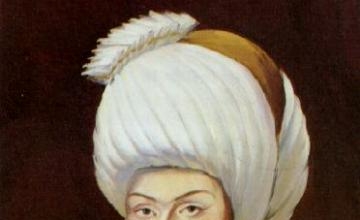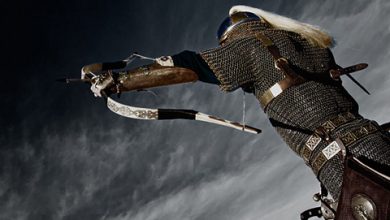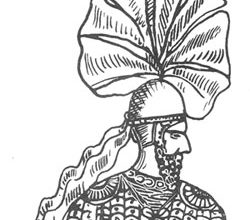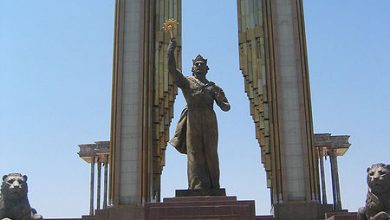The history of Qadisiyah war
Author and sender:Kourosh
Preparations for the Qadisiyah war
After Abu Bakr, the first caliph of the Rashidin caliphs, ended the wars of apostasy. In Muharram of the 12th year of the lunar calendar, Khalid ordered Waleed's son to go to Iraq. At that time, al-Muthani bin Haritha al-Shibani was in that area with the permission of the caliph, he joined Khalid. When this news reached Hormuz, the Iranian border guard in the area, he informed the court about the events and rushed to face the enemy.. In Hafir, which was one of the important border areas of Iran near the Persian Gulf, there was a war known as the Chain War. "Hormoz" was killed in the fight with Khalid son of Walid and his army was defeated.
After that, a battle called the Battle of Elis took place in Elis, located on the bank of the Euphrates River. When Fatah was given to Khalid, Khalid was surprised. Marzban Anhudud, Azadbe, fled in front of the Arab army without fighting. And the victory came from that Khalid army. In the war of Anbar, Shirzad, the Iranian commander of the city, was forced to make peace.
The following year in 634 AD, Abu Bakr made Khalid the commander of Sham with half of his army, and the other half of the army remained in Iraq under the command of al-Muthani bin Haritha al-Shibani.. Abu Bakr died in the same year and Umar succeeded him.
Umar again sent al-Muthani bin Haritha al-Shibani, who had come to Medina when Abu Bakr was ill, with Abu Ubayd Masoud Thaqafi and another group back to Iraq.. Al-Muthani was surprised and after a month, Abu Obeid Masoud Thaghafi also joined him.
The threat of Iran from the Arabs made the Iranian court Rostam Farrokhzad He asked the governor of Khorasan to give him the authority to deal with the attacks. Rostam Farrokhzadincited the farmers of the Euphrates against the Arabs, and in a battle known as the Battle of the Bridge on the coast of the Euphrates, the Arab army suffered a severe defeat and Abu Obaid Masoud Thaqafi was trampled under the feet of an elephant, and al-Muthani bin Haritha Al-Shibani was injured, and with great difficulty, the Arab army was able to give four thousand men. casualties to retreat. Bahman Jadavieh was determined to follow them, but the situation in Iran was such that Bahman had to give up that idea.
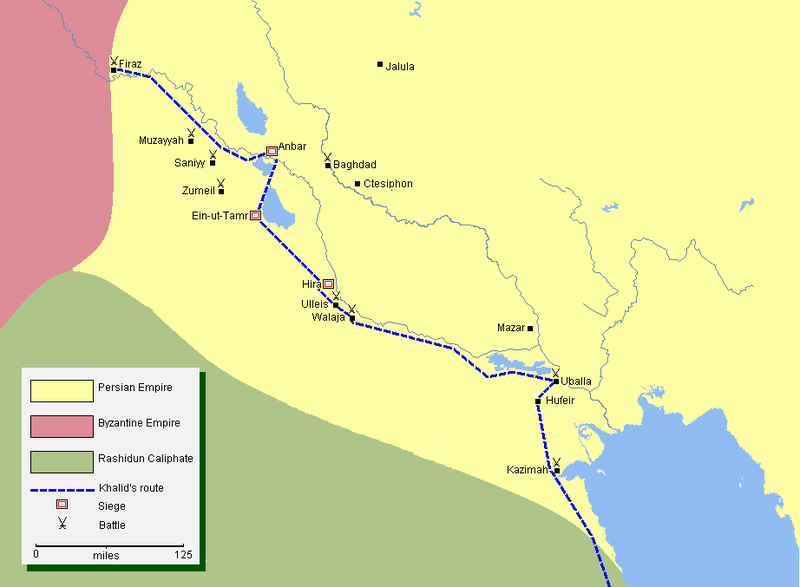
The story of the Qadisiyah war
In the 14th year of the Hijri, equal to 635 AD, Yazdgerd III Shahriar of Iran, the commander of the Lashkar Rostam Farrokhzad He left. Rostam At that time, he was considered the true viceroy of Iran, he was a man of management and a brave leader.. He was fully aware of the great danger that had occurred as a result of the Arab attack on Iran, so he assumed the overall command of the military force and made a brave effort to repel the new enemy..
At the same time, al-Muthani bin Haritha al-Shibani, the Arab general, died due to a wound he received in the battle of the bridge.. From Caliph Umar bin Khattab, Saad son of Abi Waqqas was assigned to Iraq and with great effort, thirty thousand troops in Swad (Iraq) gathered. Saad, the son of Abi Waqqas, pitched a tent in Qadisiyah and Rostam Farrokhzad He crossed the Euphrates, entered Swad, and lined up in front of the Arab army. The Qadisiyah war, which, like the Issus battle, is considered one of the definitive wars in the world, took place at this time. This war lasted for four consecutive days. On that day, due to fever, Saad son of Abi Waqqas was unable to fight, and he appointed Khalid bin Arfatah to do this work..
On the first day, the Arab horses ran away from the elephants that kept them in front. It seemed that the victory was with the Iranian army, the flanks of the Arab army were in trouble, and the damage of the Arab army was more than that of the Iranians..
On the second day, the Arab relief army that had arrived from Syria entered the field, and hand-to-hand battles took place between the warriors of the two armies.. During the fight, three Iranian generals were killed, including Bahman Jazowieh and "Bandavan".. But no definite result was obtained. A few of the deserters of the Iranian army taught the Arabs that whenever they want to repel elephants, the best strategy is to aim at their trunks or eyes..

On the third day, the elephants appeared again in the battle line, the Arabs wounded the elephants in the same way and took them away from the battlefield.. Finally, the elephants returned and caused disruption in the Iranian army. The two armies approached each other and fought with swords and spears until the sunset, and neither side was victorious. after the war Rostam Farrokhzad For the comfort of the people of his army, from (Nahr al-Atiq) He passed over there. The Arabs were strengthened due to the arrival of major forces from Syria, and at night the morale of the Arabs was better than that of the Iranian army.. When the Arabs realized that the Iranians wanted to rest at night, a group of Arab soldiers, along with two of the commanders of the Arab army, attacked the Iranian army separately in the darkness of the night and killed some of them, and the war continued throughout the night..
On the fourth day, which is the last day of the war, a strong and burning wind blew and burning sand hit the Iranians so that they could not see each other.. The Arabs were familiar with this type of tornado in their borders and had more endurance. Rostam Farrokhzad had to take refuge under the camel's foot in the shade. An Arab by the name of Hilal bin Alqamah, who knew that the camel was loaded with dirhams and dinars, cut its rope with a blow of the sword without knowing who was under the load.. A load cut off, on Rostam He fell from the weight of his back Rostam broken.Rostam However, he threw himself into the river and began to swim. The Arab, as if he recognized him, searched behind him in the water and grabbed him from the water, hit him on the forehead, cut off his head and speared him.. Then he went to his bed and called out to the God of the Kaaba Rostam I killed. by being killed RostamIn the heart of the Iranian army, there was a defeat, some of them took the path of defeat, and some of them continued to fight and stood until death..
I brought most of these contents from the internet
And what I am writing now is my own research
Now maybe everyone has a question, why are Arabic works left behind?
Iran has experienced heavy attacks such as the Arab and Mongol attacks, but the worst of them was the Arab attack, because it is said that the Arab troops were able to survive. When the Arab troops reach Tisphon, the Iranians show strong resistance, and this causes the Arabs to retreat for two days, and the commander of the army The Arab swears to massacre all the people of the city
(My hand is shaking when I write this)
Finally, Iran's defense will break Arabs Men and children are killed and women are sent to Saudi Arabia and Iraq for sale
It is said that the loot obtained was equivalent to 10,000 gold and silver camels (The issue of Darfash Kaviani is separate )
One of the reasons for the defeat of the Iranian army was that they told the Arabs that if they die, they will go to heaven, and if they don't die, Iran will become heaven for them.
Darfesh Kaviani in the first battle between Iranians And Arabs The savage is sent to Mecca as a booty. It is said that the door was decorated with pearls, diamonds and rubies.
The Arabs are all tent people and have never seen anything called a palace, and it was the Iranians who taught the Arabs how to build palaces, and before the invasion of Iran, the Arabs did not recognize metal as gold, and traded with each other with goats and sheep.
thanks all



